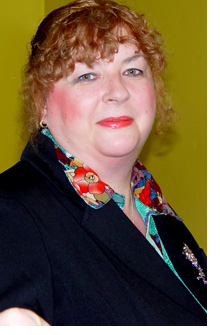Words that wound
Thu, 03 Nov 2011 13:33:00 GMT
 THE old adage that ‘sticks and stones may break my bones but words will never hurt me’ is simply untrue, as a psychology lecturer has shown in a new article. The wounds caused by verbal abuse of children by adults can be deep, painful and take years to heal – if they ever do.
THE old adage that ‘sticks and stones may break my bones but words will never hurt me’ is simply untrue, as a psychology lecturer has shown in a new article. The wounds caused by verbal abuse of children by adults can be deep, painful and take years to heal – if they ever do.
Dr Helen Gavin, of the University of Huddersfield, argues that childhood emotional abuse can have even more far-reaching and insidious consequences than physical or sexual abuse.
There are many forms of emotional abuse, she writes. They can be aggressive, such as insults and threats, but can also be indirect, taking the form of criticism, advice or help, with the intent to belittle or control. The end result could be psychological scars that last into adulthood, affecting relationships. Physical well-being can suffer too.
Dr Gavin describes her own research project into emotional abuse – an extensive profiling of childhood experiences of 165 participants using psychological tests. A number of participants were selected for a second round of interviews and the findings were analysed. The statistics which emerged strongly suggested that there was a link between recollected levels and types of abuse in childhood and adult health and social adaptation.
The article includes several examples of verbal abuse and parental put-downs recollected by interviewees, but not all felt that they had been victims. Some participants remembered incidents that could be interpreted as aggressive or humiliating but refused to acknowledge them as such, backing up a theory that the scars of emotional abuse are often invisible even to the victim.
Although the responses of the participants were varied, Dr Gavin concludes that the sample interviewed “showed significant negative relationships between emotional abuse and satisfaction with life and resistance to illness, suggesting that abuse has effect throughout the life course”.
- ‘Sticks and Stones May Break My Bones: The Effects of Emotional Abuse’, by Dr Helen Gavin, appears in the current Journal of Aggression, Maltreatment and Trauma.







